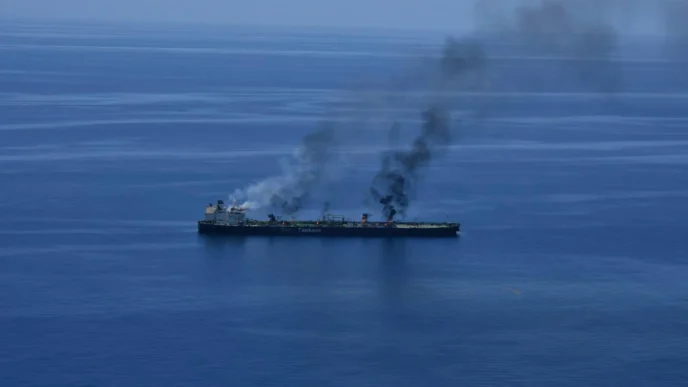The United States Department of the Treasury has announced a new round of sanctions targeting individuals and entities linked to Iran’s covert oil smuggling operations, intensifying efforts to disrupt the country’s circumvention of international restrictions and financial networks.
The move is part of a broader strategy by the Biden administration to enforce compliance with longstanding sanctions on Tehran, particularly those related to its energy exports, which remain a critical source of revenue for Iran’s government. U.S. officials say the targeted network has been instrumental in facilitating illicit oil sales that bypass global oversight and fund destabilizing activities across the Middle East.
Key Sanctions Targets
According to the Office of Foreign Assets Control (OFAC), the latest designations include a web of shipping companies, front businesses, financial intermediaries, and maritime logistics firms operating in Asia and the Middle East. These entities have allegedly enabled the transport and sale of millions of barrels of Iranian crude oil under false documentation and flag registries.
“The Iranian regime continues to exploit global shipping routes and shell companies to evade sanctions and fund malign activities,” said Brian Nelson, Under Secretary of the Treasury for Terrorism and Financial Intelligence. “Today’s action demonstrates the United States’ commitment to enforcing sanctions and disrupting these illicit revenue streams.”
Smuggling Tactics and International Implications
Iran’s oil smuggling methods have grown increasingly sophisticated in recent years, often involving ship-to-ship transfers, false cargo manifests, and reflagging of tankers to obscure origin. Sanctioned oil often ends up in China, Syria, and parts of Southeast Asia—sometimes sold at a discount through opaque networks of intermediaries.
The U.S. has worked with international allies and commercial shipping registries to enhance maritime monitoring and intelligence-sharing, with the goal of detecting and interdicting illegal shipments. Analysts note that this enforcement campaign also serves a broader geopolitical message aimed at Iran’s regional posture and nuclear ambitions.
Impact on Global Oil Markets
While the direct impact of these sanctions on global oil prices is expected to be limited in the short term, they add a layer of uncertainty to an already volatile energy market. Crude prices have been fluctuating amid concerns over Middle East tensions, OPEC+ output decisions, and evolving demand dynamics in Asia and Europe.
Market observers warn that more aggressive enforcement could lead to tightening supply from illicit sources, potentially influencing pricing if geopolitical risks escalate further.
Strategic Context
The latest sanctions come amid renewed diplomatic efforts by the U.S. and European partners to contain Iran’s nuclear program and regional influence. Talks surrounding a revised nuclear framework have largely stalled, with Washington increasingly turning to pressure tactics instead of engagement.
These sanctions also signal Washington’s commitment to upholding the integrity of the international energy trade, particularly at a time when enforcement of rules-based commerce has become a central theme in U.S. foreign policy.
Conclusion
The United States’ fresh sanctions against Iran’s oil smuggling network mark a continued hardline approach to Tehran’s economic lifelines. As the U.S. leverages financial tools to disrupt clandestine operations, the international community will closely watch how Iran responds — and whether such measures will deter its ambitions or further entrench its defiance.
















